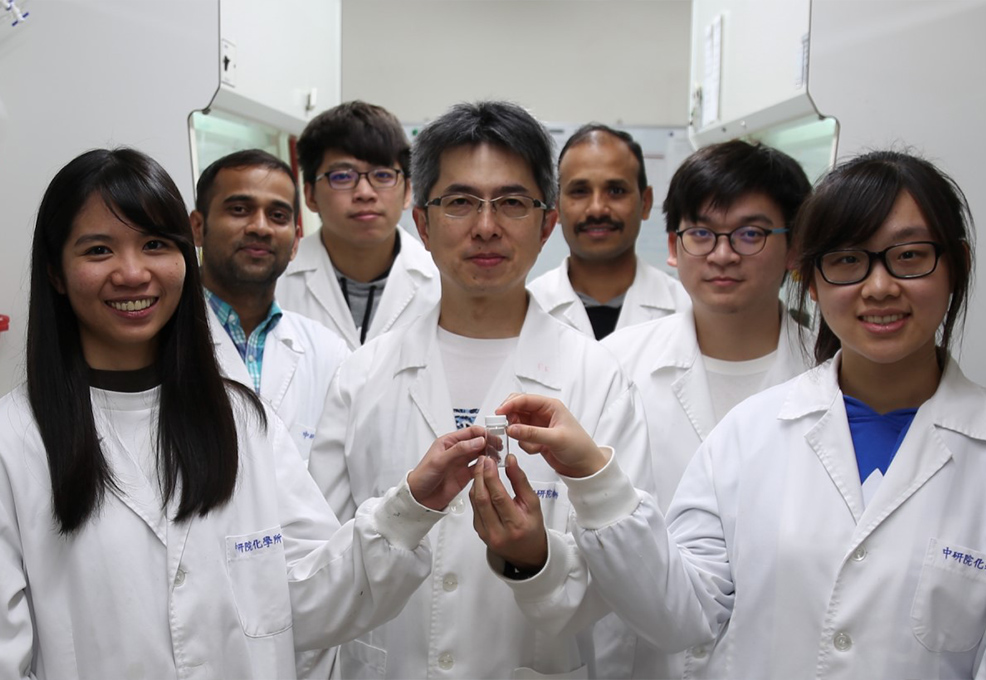An Amazing Month for Albert Einstein’s Theory of General Relativity

Author(s)
Rong-Jie CheinBiography
Dr. Rong-Jie Chein obtained his Ph.D. under the supervision of Prof. Tse-Lok Ho at National Chiao Tung University in 2005. During 2007 to 2009, he took a postdoctoral position in the laboratory of Professor E. J. Corey at Harvard University. In 2009, Rong-Jie began his independent career at the Institute of Chemistry, Academia Sinica and was promoted as an Associate Research Fellow with tenure in 2015. His current research interests focus on total synthesis of natural products, asymmetric catalysis and drug discovery.
Academy/University/Organization
Academia Sinica-
TAGS
-
Share this article
You are free to share this article under the Attribution 4.0 International license
- NATURAL SCIENCES
- Text & Image
- June 21,2020
Remdesivir is a broad-spectrum antiviral medication developed by the biopharmaceutical company Gilead Sciences and is currently the only registered therapy for treating COVID-19 patients. Considering from the perspective of early measures, Dr. Rong-Jie Chein and his team from the Institute of Chemistry, Academia Sinica started the Remdesivir Synthesis Project on February 6th of this year, completed the hundred-milligram-scale synthesis of remdesivir in 2 weeks, and immediately followed up with a 99% purity gram-scale synthesis in just 4 days. Should there be a need in Taiwan and production shortfalls in the United States, Taiwan would request Gilead’s authorization to manufacture the drug locally. Moreover, Dr. Chein has teamed up with Dr. Wei-Hau Chang (protein complex using Cryo-EM) and Dr. Der-Lii M. Tzou (small protein and peptide using NMR) of the Institute of Chemistry to develop the antiviral protein-protein interaction inhibitors that would interrupt the assembly of the aforementioned viral transcription and replication complex “machine” for the treatment of COVID-19.
Since the outbreak at the end of 2019, COVID-19 has caused a storm around the world which has not stopped to date. Currently there are no specific treatments or vaccines available to treat the novel coronavirus, and remdesivir, among the experimental drugs, has perhaps received the most attention. Results of several clinical trials indicated that remdesivir could significantly shorten the recovery time of hospitalized COVID-19 patients. Its safety was also supported by the preliminary data. A number of countries have authorized the emergency use of remdesivir for the treatment of hospitalized patients with severe COVID-19. The Taiwan Food and Drug Administration has also granted a conditional license allowing the importation of remdesivir.
As part of the search to make available potential remedies for the coronavirus, a research team led by Dr. Rong-Jie Chein from the Institute of Chemistry, Academia Sinica started the Remdesivir Synthesis Project on February 6th of this year, under the direction of President James C. Liao. Dr. Chein’s research team decided to adopt the 2nd generation remdesivir synthetic route developed by the American biopharmaceutical company, Gilead Sciences. The 2nd generation route is amenable to large-scale manufacturing but is more time-consuming in establishing recrystallization procedures for the separation of diastereomeric intermediates instead of using high-performance liquid chromatography (HPLC). Dr. Chein’s team started the project from scratch, as acquiring the relatively rare starting materials was difficult during the pandemic, and as a result, the already complicated synthetic process had to be expanded from 11 to 20 steps. It was highly encouraging that the team completed the hundred-milligram-scale synthesis of remdesivir in 2 weeks, and immediately followed up with a 99% purity gram-scale synthesis in just 4 days. The great success of Dr. Chein’s team could help with remdesivir mass production through technical transfer in support of Taiwan’s epidemic prevention. Should there be a need in Taiwan and production shortfalls in the United States, Taiwan would request Gilead’s authorization to manufacture the drug locally.
Remdesivir is a nucleotide analog prodrug that targets RNA-dependent RNA polymerase (RdRp), also known as the non-structural protein (nsp) 12 – one of the key enzymes that SARS-Cov-2 needs to replicate its genetic material (RNA) and proliferate in human bodies. After metabolism, the triphosphate derivative of remdesivir, the actual active form, is directly incorporated into the RNA growing chain, which, in turn, distorts the shape of the RNA strand and then terminates its production. This stops the virus from multiplying and infecting more cells in the body.
The polymerase nsp12 is assembled with several cofactors, such as nsp7, nsp8, nsp13, nsp14, to form a highly efficient RNA synthesis "machine," which plays an extremely important role in the replication process of the SARS-Cov-2 virus. While remdesivir targets nsp12 only, Dr. Chein has teamed up with Dr. Wei-Hau Chang (protein complex using Cryo-EM) and Dr. Der-Lii M. Tzou (small protein and peptide using NMR) of the Institute of Chemistry to develop antiviral protein-protein interaction inhibitors which use small-molecule medication that would interrupt the assembly of the aforementioned viral transcription and replication complex “machine” for the treatment of COVID-19.
STAY CONNECTED. SUBSCRIBE TO OUR NEWSLETTER.
Add your information below to receive daily updates.




